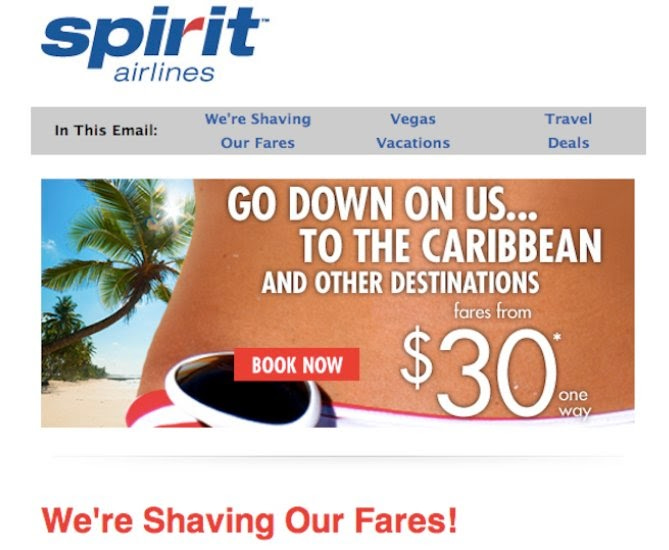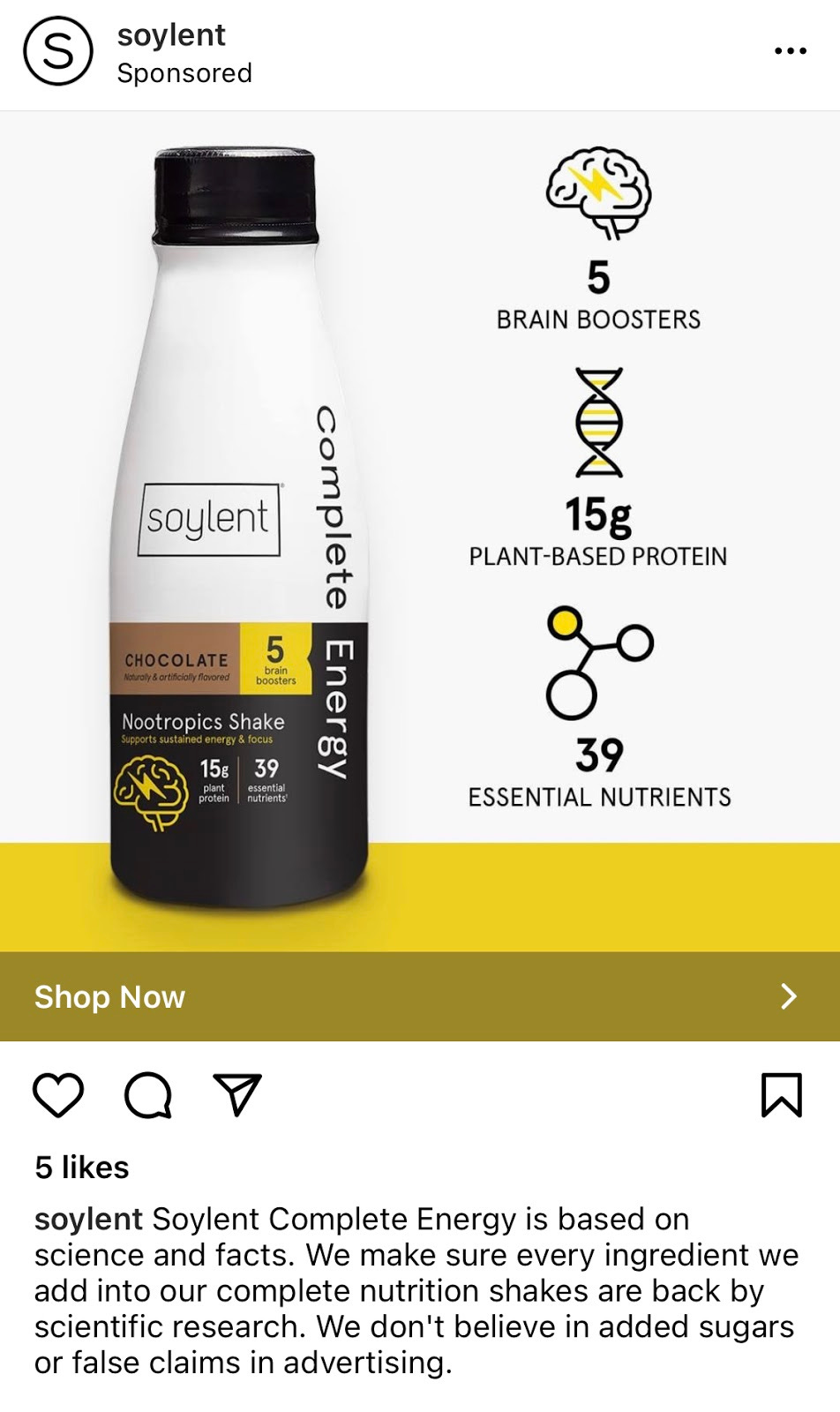A newsletter about branding, startups, and mission-driven companies aiming to make the world a better place.
👋 Welcome to For The Love, so happy to have you all here!
Today we’ll be discussing:
Female-founded DTC sexual health brands, breaking down stigmas
A roundup of new launches this week, including a new brand making every day feel like a spa day
Not eleven months into the pandemic
If you were forwarded this by a friend, join over 2,100 other DTC enthusiasts by subscribing here!
⚡ For The Love of Branding
Sex sells, as the saying goes.
That is, except when the product is related to, well, sex.
And that’s especially true if your product is for women.
Female sexuality has been used to sell everything from food to...flights.
But when it comes to female pleasure, or even products tangentially related to it...no matter how subtle the ad, they’re deemed too racy.
An ad with the tagline “hard made easy”—well that’s a-okay.
Why? Because erectile dysfunction falls under the category of family planning.
“Sex is used to sell every single product under the sun. But when it comes to women wanting to advertise products so that they can control that narrative, it's rejected...it's infuriating, and the standards are outdated,” Polly Rodriguez Co-Founder & Ceo of Unbound told me.
“I am shocked that given how much the ecosystem has changed...that the policies are still so antiquated in the way that they're written and enforced. It genuinely is surprising to me, because basically, the policies across social media, TV, radio, I mean, any platform you could advertise on, are written in a way where they're very puritanical. It's basically like if you are a product that assists with procreation, and family planning, then you can advertise, which is very convenient for brands and people with penises, because pleasure and sex are one and the same with procreation. Whereas for women, femme, non-binary people that have a labia, that specific anatomy of pleasure and procreation have been decoupled since the dawn of time. It categorizes any product that exists to make sex more pleasurable, enjoyable for everyone, as a vice product that can't advertise.”
Unbound is a line of “body-safe toys for curious babes,” including vibrators, lube, and a range of accessories. Needless to say, not paid ad-friendly.
Which, Polly explained, does have a few benefits:
“We're profitable. Honestly, the flip side of not being able to spend money on advertising is you just don't spend as much money.”
Another one is that they’re forced to be more creative to get in front of potential customers.
“In terms of new funnel customer acquisition, it's mostly organic content that we put on Instagram, like memes and things that will get people to tag their friends, as well as working with influencers.”
Their content needs to be more “niche so that people will feel like you're talking directly to them so that they'll tell their friends about you.”
Also integral to Unbound’s strategy is an inclusive view of what “sexy” means. After years of female sexuality being defined by the male gaze, Unbound operates under the assumption that sexuality is available to everyone, which means “lots of different bodies, and identities.”
“When we first started the company in 2014, the other brands that were in the space, we're not like the ones you see today, they were super hyper-sexualized...blonde women with huge boobs and lingerie, and a full face of makeup and big high heels on, and we would look at that and feel like, well, I don't look like that, so these products must not be for me. And so it was like, how can you create a brand identity that allows people to be vulnerable, but is still fun, and doesn't objectify women or tell them what sexy is supposed to look like,” Polly explained.
And that attitude is reflected throughout the brand—it’s bold, playful, and confident.
Not coincidentally, that also helps them get noticed. Polly said:
“When we started the brand, it was just me, so I would just write quirky, weird emails in hopes that people would open and read them. Because it was literally the only channel I had to try to reach people, that and Instagram. And so with both of those, we tried to constantly just make content that that would make people laugh because I think laughter is a thing that allows people to let their guard down a little bit and kind of be like, okay, that's a relatable moment, I see what you're talking about, and identify with that, I'm gonna hear what else you have to say. And so, that was like the origin of the brand. And I think from there, we just realized we have to be maximalist, always, we have to be loud. Because we don't have access to the other platforms.”
It also has the added benefit of rebelling against female stereotypes.
“I think it speaks to the values—we're told to be quiet and kind of muted in a lot of what we do. And so I think the brand is also representative of being kind of like a fuck you to that—we'll be as maximalist as we want.”
Éva Goicochea, founder of Maude, a “modern sexual wellness company, is taking a different approach—rebelling against the traditional definition of “sexy” with understated elegance, and sophisticated neutrals.
Their branding is awash with warm, nature-inspired shades, punctuated with line drawings meant to be “a cheeky nod to body parts,” according to Éva.
Inclusivity is at the forefront of the brand, centered around the idea of sex as a natural part of life.
Éva explained:
“For us, it's not only inclusivity of age, I think the industry has been very focused on a young audience for a very long time, it's also inclusivity of gender, and really just making sex about people...We're trying to lead the way in terms of a cultural change around how you think about sex and how you talk about sex. And what that means in terms of product development is are you setting the mood? Are you making time to care for your partner and yourself beyond just having sex? Are you doing something to make sure that it doesn't feel transactional and like a commodity, which is how a lot of companies in the space have spoken to us—it's like, here's your condom, go have sex...It's about broadening how it fits into people's everyday, and saying it’s okay to think about sex as a part of your everyday health, as a part of everyday conversation.”
This approach to sex as a part of life, just another form of self-care, is mirrored in their product assortment, where vibrators and condoms sit alongside body wash and bath salts.
“It's product disarmament...really what we're saying is, these things are basics, they should all be treated the same way,” according to Éva. “Are these things additive to your sex life? Do they create more room for you to think about your sex life? It's not that we're trying to be a body care brand. It's just that sex does go beyond just having sex.”
Éva’s goal is “to make our customers feel like they can think about their sexuality very much like they think about the rest of their health and wellness—free from shame, free from dumbed-down marketing, and with an experience that is not explicit or invasive.”
This breadth of products also allows them some leeway in terms of advertising, although they still experience censorship around their vibrator.
Another way they’ve raised brand awareness recently?
A partnership with Dakota Johnson, who approached them not only to invest but also take on a meaningful role in the company (she now holds the title of co-creative director).
While Éva was not initially looking to partner with a celebrity, this one made sense. She explained of Dakota (who starred in Fifty Shades of Grey), “she really believes in the category and is obviously not afraid to talk about the subject and take it on. And she has an interest in continuing to create, I would say, destigmatization and normalization around sex.”
Dakota Johnson’s not the only celebrity getting into the sex-toy business—Lily Allen and Cara Delevingne are both now affiliated with sexual health brands. And never one to be left out, Gwyneth Paltrow’s Goop just released a vibrator as well.
In a recent interview with The New York Times, she explains that they’re bringing something new to the market—“I think we were just trying to do something…perhaps a little more intellectual,” which is...very Gwyneth—implying that a high IQ is required to take ownership over your sexuality.
(And that’s before she claims trend-setter status for being an early mask-wearer *and* getting COVID before anyone else she knows.)
As Polly told me, “I am sick of the narrative that you have to be of a certain intellect and a certain social status in order to be sexual.”
While it is a departure from the male-gaze-defined version of sexuality, it’s still exclusionary.
I, for one, would like to live in a world where there are more versions of female sexuality than alternative milks.
🔥 For The Love of Newness
Kulfi is a celebration of South Asian culture and beauty, by way of five bold eyeliner colors (and headbands and stickers).
Non-verbal is a new line of adaptogenic chocolate with a lot to say—namely that it’s “paleo, refined sugar-free, gluten-free, and dairy-free, with no additives.”
A new leisurewear category for your consideration—Korean spa.
Swarovski got a colorful new rebrand, its first in 32 years.
🔍 For The Love of the Details
Pour one out for all of the copywriters and marketers who are working to sell products that aren’t a natural fit for WFH pandemic life. As a former Creative Director for a workwear brand, I empathize.
Speaking of which, you know what a *perfect* product would be if I was on the go and didn’t have the time or need to sit down and take the slightest bit of joy from the consumption of food?
That’s right. Soylent.
For when you absolutely positively need to eat something or you’ll pass out on the subway.
Well, Soylent marketer, I know you’ve got a job to do—but do you know how many days in the past eleven months where the slow consumption of delicious food was ALL I HAD?
Not today, Soylent.
Not today.
Thank you for being part of For The Love!
A few more things...
Is there a topic you think I should cover? Or a funny ad I can dissect? I’d love to hear from you! You can email me at info@ajasinger.com, respond to this email, or drop it in the comments ⬇
Know someone who’d enjoy this newsletter?
Was this newsletter forwarded to you?
Written by Aja Singer, a brand and creative strategy consultant interested in all things startup, mission-driven, and community. Born in Canada. Based in Brooklyn. You can also find me on Instagram and Twitter.












